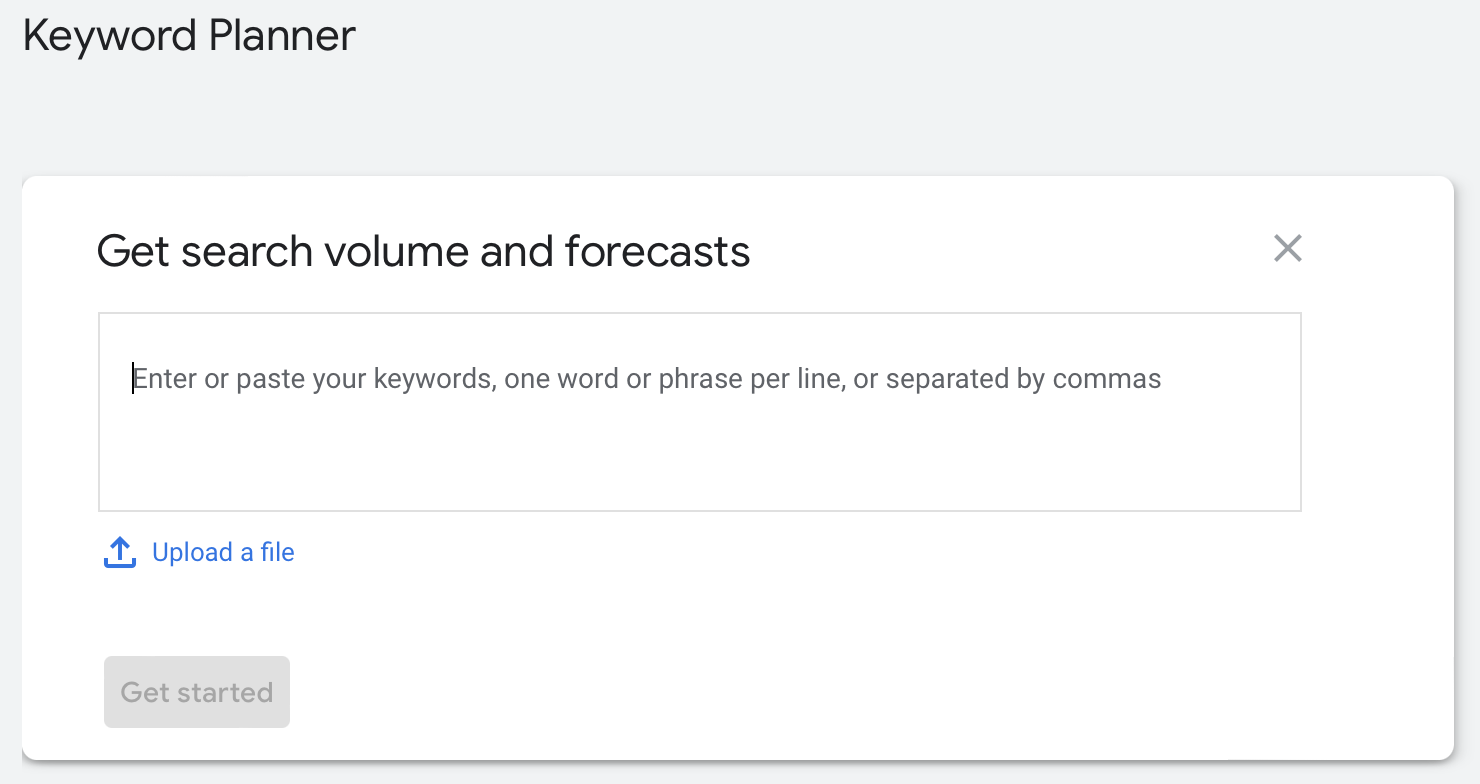

Welcome to the wonderful (and sometimes overwhelming) world of SEO! If you’re just starting out, you’ve probably heard the term “keyword research” thrown around a lot. Not sure how to start ? Don’t worry, we’re all beginners once.
This guide will take you from keyword clueless to creating a curated list you can actually use in less than an hour.
Imagine building a house without a blueprint. That’s kind of what creating content without keyword research is like. They’re the foundation of your SEO strategy, helping your understand what people are searching for and ensuring your content reaches the right audience. In short, it gets you seen!
We recommend to perform keyword research before you start writing your pages and articles in order to structure your content strategy. You can do this exercise every 6 months to ensure your content is still relevant.
You may also perform keyword research to find new content ideas at any point in time.
For a beginner's strategy, ~10-20 keywords is a good start. It should give you enough content ideas to keep you busy for a while. On each new keyword research iteration, you may add 5 new keywords to target.
If you already have an established strategy and some experience, feel free to use higher numbers.
Before we dive in, let's clear up some key terms.
Think of topics as broad themes (e.g., indoor gardening) and keywords as specific phrases people use to search (e.g., "best indoor plants for beginners with cats").
With the evolution of search engines capabilities, keywords themselves have become less relevant. What matters the most is the search intent and the topic behind that keywords, the "why" and "what" behind the search. Your content should solve that query effectively.
Short-tail keywords are broad and competitive ("plants"). They usually gets higher traffic but drive less conversion. They can be considered in a long term strategy but should not be a focus for beginners.
Long-tail keywords are more specific and less competitive ("best low-light indoor plants for beginners with cats"). They get less search volume but usually drive more conversion, as someone looking for something that specific is a much more qualified searcher. They have higher changes to show short term results.
Long-tail keywords drive more targeted traffic and conversions, making them perfect for beginners like you.
This refers to the searcher's goal. There's four main intent :
- Informational: They want to learn something
- Navigational: They're looking for a specific website or company
- Transactional: They want to compare products and may be ready to buy
- Commercial: They are ready to buy now
Identifying the intent helps you tailor your content accordingly
Keyword research starts with self-discovery. Define your core offering and target audience in one sentence. What unique value do you provide, and who are you passionate about helping?
Next, brainstorm topics relevant to your audience and offer. For each topic, list keyword phrases they might use on Google. Focus on informational and transactional keywords to attract high-value visitors. Aim for 50 keywords at this stage.
Feeling stuck or want to speed up this process ? You can get some help from AI tools like ChatGPT.
Here's an example of prompt you can use :
"As an SEO specialist with 10+ years of experience, you're in charge of Keyword Research for [product or company name]. Our core offer is [core offer]. Our target audience is [target audience]. Our main competitors are []. Suggest 25 keywords interesting to target for a transactional intent, and 25 keywords interesting to target for an informational intent"
Refine the list with your own ideas and remove irrelevant ones.
Now let's polish our list. Tools like Google Keyword Planner help us filter keywords with low search volume or high competition.

Past your list of keywords and clic on "Get started". You should get a table with the results like this :

There's two columns you should care about :
Keep keywords with decent monthly searches (above 100) with low competition. This step should reduce your list down to ~20 keywords.
If you don't end up with enough keywords, you can add keyword with more than 10 monthly search and medium competition.
On the opposite, if you have too many keywords, remove the ones with more than 100k monthly searches. They will probably be hard to rank for.
Ideally, we want to keep 50% of informational keywords and 50% of transactional ones.
Now that you have your curated keyword list, you have two options :
If you already have content, you can compare your existing keywords with this new list. Identify missing topics or outdated content to refresh your SEO strategy and make sure your content is still relevant.
Select 3-5 keywords from this list around a single topic. Aims for a diverse mix of search intent and volumes. Choose a topic relevant to your audience and consider linking it to existing content for a cohesive strategy. Aim for one piece of content for each keyword in order to avoid cannibalization.
Content is king! Create high-quality content that caters to user needs, not just search engines. Utilize various formats like blog posts, landing pages or even videos.
Congratulation! You’re on your way to building strong foundation for your SEO journey.
What to do from here ?
→ Work on your content
→ Perform a technical audit on your blog and website
→ Ensure your pages are indexed
→ Monitor your ranking progress
Remember, SEO is a marathon, not a sprint. Be patient, learn continuously and watch your audience grow!
Need help ? Checkout selpo.tech, our SEO assistant tool !